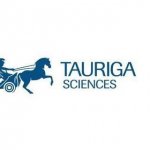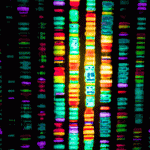Curis, Inc., (NASDAQ: CRIS), a biotechnology company focused on the development of innovative therapeutics for the treatment of cancer, today announced that it has entered into an option and license agreement to acquire exclusive, worldwide rights from ImmuNext Inc. (ImmuNext) to develop and commercialize anti-VISTA antibodies for the treatment of cancer, including ImmuNext’s lead compound, CI-8993 (formerly JNJ-61610588). CI-8993 is a clinical-stage monoclonal antibody designed to antagonize the V-domain Ig suppressor of T cell activation (VISTA) signaling pathway.
“This agreement aligns with our mission to develop the next generation of targeted cancer therapies and extends our leadership in developing anti-VISTA therapeutics,” said James Dentzer, President and Chief Executive Officer of Curis. “The ImmuNext team and Dr. Randolph Noelle, whose lab in the Geisel School of Medicine at Dartmouth College co-developed the original characterization of VISTA biology, bring world-class expertise that will be invaluable to our collaboration as we seek to optimize the clinical development of CI-8993.”
“VISTA is an important negative checkpoint regulator that plays a key role in the immune suppression induced by cancer,” said Dr. Robert Martell, Head of R&D at Curis. “Recent studies also suggest VISTA is strongly upregulated in response to treatment with other cancer immunotherapy agents. We believe, a therapeutic antibody that can target and suppress VISTA represents a compelling single-agent strategy to potentially reverse tumor immune suppression and prevent resistance to other checkpoint inhibitors. In 2019, Curis led the clinical development of the first anti-VISTA program with a small molecule, CA-170. We look forward to leveraging that experience in 2020, this time with an antibody.”
CI-8993 was originally developed as part of a license and collaboration agreement between ImmuNext and Janssen Biotech, Inc (Janssen). In 2016, Janssen initiated clinical development of CI-8993 in a Phase 1 study evaluating safety, pharmacokinetics and pharmacodynamics of ascending doses of CI-8993 in patients with advanced solid tumors. The study enrolled 12 patients, in which one patient experienced dose-limiting side effects related to cytokine release syndrome. Janssen opted to close the study and ImmuNext regained control of the asset.
Want to publish your own articles on DistilINFO Publications?
Send us an email, we will get in touch with you.
“In the years since the original CI-8993 study, the advent of CAR-T therapy and broad expansion of immunotherapy have led to an evolution within the oncology community toward the safe management of “on-target” side effects such as cytokine release and immune-mediated toxicity. For example, in 2018, the National Comprehensive Cancer Network (NCCN) developed its Guidelines for Management of Immunotherapy-Related Toxicities. We believe the time is right to re-introduce CI-8993 into the clinic as a potentially transformative new therapy for patients,” said Dr. Martell.
Under the terms of the agreement with ImmuNext, Curis will make an upfront payment to ImmuNext in exchange for an option to obtain an exclusive, worldwide license to develop and commercialize ImmuNext’s anti-VISTA compounds and products containing these compounds in the field of oncology. This option is exercisable upon the earlier of: (i) four years from signing of the agreement; and (ii) 90 days after database lock for the first Phase 1a/1b trial in which the clinical endpoints are satisfied. Upon option exercise, Curis will pay ImmuNext an option exercise fee. ImmuNext is also eligible to receive future potential development, regulatory, and commercial milestone payments, as well as royalties on product sales.
For more information regarding the financial and other terms of the agreement, please refer to the Current Report on Form 8-K filed by Curis with the U.S. Securities & Exchange Commission on January 7, 2020.
Source: BioSpace







